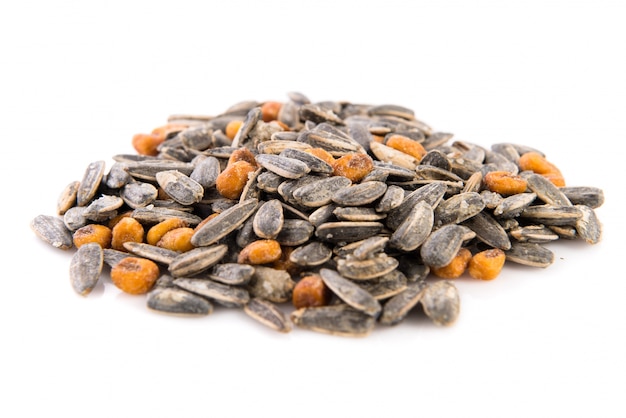Sunflower Seeds Nutrition Facts – Unveiling the Health Benefits

Sunflower seeds are packed with essential nutrients.
Did you know that sunflower seeds are a great source of protein?
Sunflower seeds are rich in healthy fats, which are good for your heart.
Snacking on sunflower seeds can help you maintain a healthy weight.
Sunflower seeds are a great source of Vitamin E, which is good for your skin and hair.
Sunflower seeds are a great alternative to unhealthy snacks.
Adding sunflower seeds to your diet can improve your overall nutrient intake.
Sunflower seeds make a great addition to salads for a crunchy texture.
Sunflower seeds are a good source of magnesium, which can help regulate blood pressure.
Did you know that sunflower seeds are a natural mood booster?
Snacking on sunflower seeds can help curb your hunger between meals.
Sunflower seeds contain antioxidants that can help protect your cells from damage.
Sunflower seeds are a great source of fiber, which aids in digestion.
Sunflower seeds are a good source of iron, which is important for oxygen transport in the body.
Eating sunflower seeds can help reduce inflammation in the body.
Sunflower seeds are a good source of selenium, which plays a role in thyroid function.
Adding sunflower seeds to your diet can boost your immune system.
Sunflower seeds are a delicious and nutritious snack option.
Snacking on sunflower seeds can help improve your mental focus.
Sunflower Seeds Nutrition Facts – Unveiling the Health Benefits part 2
Sunflower seeds are a good source of folate, which is important for cell growth.
Including sunflower seeds in your diet can help lower cholesterol levels.
Sunflower seeds are a great source of plant-based protein for vegetarians and vegans.
Sunflower seeds can be enjoyed on their own or added to a variety of recipes.
Snacking on sunflower seeds can provide a natural energy boost.
Sunflower seeds are a good source of potassium, which is essential for heart health.
Adding sunflower seeds to your meals can help you feel more satisfied.
Sunflower seeds can be a beneficial addition to a diabetic diet due to their low glycemic index.
Snacking on sunflower seeds can help support bone health.
Sunflower seeds are a great source of B vitamins, which are important for energy production.
Including sunflower seeds in your diet can aid in the prevention of certain chronic diseases.
Sunflower seeds are a versatile ingredient that can be used in both sweet and savory dishes.
Snacking on sunflower seeds can help reduce cravings for unhealthy foods.
Sunflower seeds are an excellent source of thiamin, which is important for brain function.
Adding sunflower seeds to your meals can add a satisfying crunch.
Sunflower seeds are a rich source of zinc, which is crucial for a healthy immune system.
Snacking on sunflower seeds can help regulate blood sugar levels.
Sunflower seeds are a good source of phosphorus, which is important for bone strength.
Adding sunflower seeds to your diet can help prevent constipation.
Sunflower seeds are a nutritious and delicious addition to homemade granola bars.
Snacking on sunflower seeds can help reduce the risk of heart disease.
Sunflower seeds are a rich source of dietary fiber, which can aid in weight management.
Including sunflower seeds in your diet can help improve skin health and reduce acne.
Sunflower seeds are a good source of arginine, which can improve blood flow.
Adding sunflower seeds to your diet can help regulate hormone levels.
Snacking on sunflower seeds can contribute to a balanced and nutritious diet.

